In Defense of Naiveté
What makes a hero? A lot of things can; no one thing should. A hero can be a cynical pragmatist, or a morally grey antihero, and stories are often the richer for that. But a persistent, classic mold of the hero is the idealist. In the safe space of a rollicking action movie, heroes can represent idealism that doesn’t have to compromise, and we root for them because of it. Heroes can bear their naivé idealism as a weapon, made all the more powerful by their uncompromising belief in good, and the audience’s knowledge that the real world isn’t like that… but wouldn’t it be nice if it was? Three recent cinematic heroes can all be called naivé for their beliefs and resultant actions, but should also be championed for their idealism: Ilsa Faust (Rebecca Ferguson) in Mission: Impossible – Rogue Nation, Rose Tico (Kelly Marie Tran) in Star Wars: The Last Jedi, and Wonder Woman/Diana Prince (Gal Gadot) in Wonder Woman. Especially in fiction, naiveté needn’t be pejorative, and these characters are case studies in why.
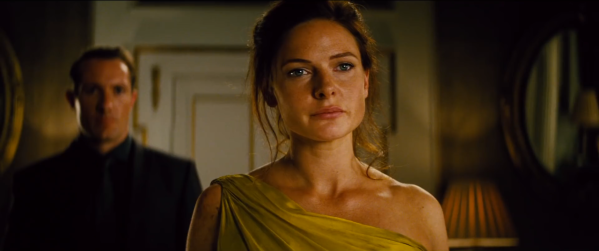
Ilsa Faust is an MI6 agent who has been assigned by her agency to infiltrate the Syndicate, an international rogue cabal of ex-spies who have turned from espionage to glorified terrorism. It is later revealed that the Syndicate was originally the brainchild of Atlee, Ilsa’s MI6 handler, highlighting with a sharpie the agency’s corruption. That murkiness is contrasted with Ilsa herself. Ilsa is an efficient killer and manipulator, no doubt. But she also naivély believes that agents of allied nations have a responsibility for each other, as she demonstrates when she risks blowing her cover to save IMF agent Ethan Hunt.
Ilsa is vindicated, as she and Ethan expose the Syndicate, foil their plans, and arrest their leader Solomon Lane. Had Ilsa followed MI6’s orders, Ethan would’ve been left at the mercy of the Syndicate. At first, when Ilsa rescues Ethan, she feels like a plot device to free the lead character, but in retrospect, Ilsa’s act defines her character. She doesn’t know Ethan has the outsize power that comes with being the main character. Ilsa simply sees an American agent in danger and saves him without hesitation. She represents a better, less pragmatic, more naivé version of statecraft. And accomplishes the impossible mission because of it.

Rose Tico is a Resistance technician whose home planet was strip-mined by the neo-fascist First Order. At Rose’s first meeting with former Stormtrooper Finn, Rose sees Finn’s actions in The Force Awakens as those of an overly simplistic and idealized hero. Initially, she doesn’t see Finn as a person. Ironically, after Rose reprimands Finn for attempted desertion from the Resistance, she starts them both on a path to true heroism, as he commits to the Resistance that Rose so believes in. Rose’s beliefs are contrasted in the movie with the roguish character DJ, who points out that corrupt weapons brokers sell to the Resistance as well as the First Order. When DJ tells Finn, “It’s all a machine… be free, don’t join”, DJ is using a convenient false equivalency. At a certain point you have to realize, one side kidnaps and brainwashes babies, and the other doesn’t. One side commits willful genocide, and the other doesn’t. And that’s exactly what Finn realizes as he fully commits to the Resistance, thanks to Rose.
Something of an activist, Rose frees fathiers who had been victims of animal cruelty, and disrupts the exploitative luxury of rich war profiteers. She gives hope to downtrodden stable children, igniting their dreams of adventure and heroism. After naivély regarding Finn as a perfect hero, Rose becomes a hero herself throughout the movie. One crucial moment where Rose saves Finn from a useless sacrifice (“That’s how we’re gonna win: not fighting what we hate. Saving what we love.”) clarifies the thesis of rebellion in all of Star Wars. In the original trilogy, the Rebels are the good guys defined by opposition to the tyrannical bad guys of the Empire. Rose’s backstory, and her inspiration to downtrodden slaves at Canto Bight, provide insight into not only what Rebels fight against, but what they fight for. Rose’s sentiment is idealistic and in some situations naivé, but Star Wars supports it. When Poe Dameron asks Lando Calrissian how the Rebels toppled the Empire, he says, “We had each other. That’s how we won.” This type of idealism drives a fairy tale like Star Wars.

In her solo movie, Wonder Woman/Diana Prince emerges from the paradise island Themyscira to find a world embroiled in “the Great War” (World War I). Naivély, Diana fervently believes that the only explanation for this grand-scale conflict is manipulation from the rogue god of war, Ares. This is the kind of great idea that can provide the engine for an entire screenplay, since the audience knows the moment will come when Diana’s naiveté will crash into the realization that humanity doesn’t need divine influence to sacrifice an entire generation in the trenches over lines on a map. But when it comes to the audience’s relationship with Diana’s naiveté, viewers can consider themselves more worldly and knowledgeable, but also envy Diana’s worldview. How wonderful would it be if violent conflict could only be explained as outside manipulation? Diana’s naiveté is objectively wrong, but there’s also power to it, right alongside her literal superpowers.
When Diana affirms her beliefs in a final battle with Ares, this manifests as a quantifiable power-up, allowing Diana to break free of shrapnel bondage. She says, “I believe in love”, to which Ares responds, “Then – I shall – DESTROY YOU!” It’s a truly absurd and cheesy moment, but one that speaks to the power of naivé idealism. “I believe in love” is a bold choice for an action movie one-liner, and stands out because of it.

Ilsa, Rose, and Diana are very different characters. Where Ilsa can manipulate with the most elite of spies, Rose and Diana are unfailingly earnest. What they share are ideals, some of which are impractical and unworldly. But in heroic stories, storytellers have license to let that very naiveté win the movie. Ilsa Faust, Rose Tico, and Wonder Woman are all characters not diminished, but enhanced, by a dose of naiveté.
Franchise Flashback – Mission: Impossible 2 (2000)
EXT. AUSTRALIAN FARM. A helicopter lands, and LUTHER STICKELL disembarks. Walking a few paces, he steps in feces.
LUTHER: Shit.
Mission: Impossible – Fallout and its predecessor Rogue Nation are so good, watching them is like going to your happy place. For all the tension they generate, they’re extraordinarily pleasant to watch. In stark contrast, Mission: Impossible 2 is the black sheep of the franchise for good reason, most often embarrassing rather than entertaining. I mean, this is a movie in which (see above) Luther steps in shit and says, “Shit”.
The Name’s Hunt… Ethan Hunt
The film takes quite a bit from the James Bond playbook, but in the most warmed-over, reheated way. There’s a romance of the week (atypical for the Ethan character), scenes highlighting local international festivities (Seville), and Hunt as not so much a skilled asset but a one-man army. There’s a sexy car chase that passes for 95-mph flirting –GoldenEye much? Nyah Nordoff-Hall (Thandie Newton) is a character with a lot of potential but becomes slightly edgy Bond girl eye candy. Because the central romance has to be established, the plot starts twice and walks the audience through stuff they’ve already seen after the movie’s done faffing around for the moment.

Romantic spinning of wheels aside, Mission 2 is a pretty inept spy movie. Rogue Nation and Fallout director Christopher McQuarrie has a rule that the maximum number of mask gags you can get away with in one movie is two. There are at least five here, which gets tedious fast. There’s even a five-minute stretch with two mask reveals! (As an interesting aside, the first two Mission movies show the complete unmasking gag in a single shot, while later films almost always cut at a transition point between the actors’ faces.)

But I can’t deny the goofy entertainment to be had at the climax. Take the amazing moment when Ethan and villain Sean Ambrose (Dougray Scott) play chicken with motorcycles, then jump off and collide midair. A ridiculous one-on-one fight ensues, with each move more flamboyant than the last. That’s complete with slow motion flying kicks like this is Mortal Kombat: Annihilation. It’s bonkers; it’s entertaining; it’s not strictly speaking good. At least director John Woo gets his slow motion white dove in there! Even though in its grand entrance it’s made of painful CGI!

Try Hard with a Vengeance
In the opening moments of the movie, we hear the scientist Nekhorvich (Rade Šerbedžija) explain that every hero needs a great villain, in the context of a cure (Bellerophon) for a virus (Chimera). But the subtext is clear; the film itself is announcing a strong villain for Ethan Hunt. It introduces Sean Ambrose wearing a mask of Ethan, a tactic repeated later in the movie. Ambrose is former IMF, and in fact we witness his defection after the spy agency actually orders Ambrose to impersonate Ethan. Clearly Ambrose is intended as a classic foil, but for all of Dougray Scott’s predatory Scottish scenery chewing, Ambrose comes across as a damp squib.

There’s a built-in conflict in the backstory between Ethan and Ambrose, but the film does next to nothing with their former antagonism. John Woo’s movies often excel at depicting duos of driven, strong-willed, totemic men, so when they square off, horizontal in the air, each with guns pointed at the other, there are personal stakes. Ah Jong and Li Ying in The Killer, Tequila and Alan in Hard Boiled, Riley Hale and Vick Deakins in Broken Arrow, and Sean Archer and Castor Troy in Face/Off all fit this pattern. Ethan and Ambrose only stack up in the most perfunctory way. There’s no spark, no fire. And it doesn’t matter how many times the Nekhorvich clip is played (it’s a lot). Repeating the point doesn’t help your case.
(Side note: Mission 2 is famous for being the movie that cost Dougray Scott the role of Wolverine in X-Men. Scott was cast, but Mission overran and on top of that he was injured in a motorbike stunt. And Hugh Jackman became a star. What might have been.)
But the most garish element of Mission 2 is that this is such a bro-y movie, filled with baffling toxic masculinity. As Ambrose’s henchmen are scanning Nyah for bugs, one says, “She’s clean”, and the response is, “All cats are.” What in the living hell does that even mean??? Ethan’s team consists of himself, Luther (Ving Rhames), and pilot Billy Baird (John Polson). Billy, who sticks “mate” at the end of every sentence so you know he’s Australian, makes a leering joke about the emotionally abusive Ambrose’s kiss-first-and-ask-questions-later policy. IMF secretary Swanbeck (Anthony Hopkins) makes a sexist comment about women’s skills at lying. But the most utterly bizarre sequence comes between Ambrose and right-hand man Hugh Stamp (Richard Roxburgh). It’s a standard setup of the villain punishing his henchman. But then Ambrose gets Stamp in a vice grip and starts breathily monologuing about how “some of us have the burden of sex”, and at the moment of climax Ambrose says he’s “absolutely gagging for it” as he cuts off Stamp’s finger! I guess they were aiming for Frank Booth but they’ve landed on a fourteen-year-old’s idea of edgy sexuality.

When Nyah arrives at Ambrose’s house, she walks toward him in a dragged-out scene partially in slow motion, to the point where the viewer wonders out loud, “Will she ever get there?” The viewer can also wonder, “Will this movie ever get anywhere?”
The Silver Lining in the Sophomore Slump
The most spectacular part of the film is certainly the Utah free-climbing sequence. It’s quite a statement for the introduction for Ethan Hunt, even if the incongruous techno soundtrack doesn’t help. Above the sheer cliff face, an IMF helicopter shoots the mission (recorded on a sweet pair of shades) to Ethan in a rocket, then he throws the exploding sunglasses at the camera leading into the title sequence. That’s the type of self-conscious “cool” that I can get on the wavelength of.

And occasionally the high operatics of the film do take flight. During the showdown in Biocyte, composer Hans Zimmer thinks he’s scoring Gladiator. Similar beats in the score and more vocals by Lisa Gerrard help to elevate the material, at least for a few moments. Other than these fleeting strengths (plus the goofy entertainment value of the climax), it’s tough to pick out positive aspects of the movie. I guess it’s fun to see Cruise’s brother, William Mapother, as a henchman?
Should We Choose to Accept this?
In this sequel, the mission doesn’t seem very impossible. This feeling arises from a dull story. Ronald D. Moore and Brannon Braga of all people (writers of the rushed Star Trek Generations and the excellent Star Trek: First Contact) contributed a story that was scrapped when Woo joined the project; on the evidence of the final product, maybe their services should have been retained. Mission 2, with its overblown villain, hacky screenplay, bizarre sexual subtext, and flat pacing, is as dry as the Australian outback. It fits with the trend of 2000s blockbusters filmed in that country, like Superman Returns or Star Wars Episode 2: Attack of the Clones, and is of similar quality. Let’s just say that when the Mission: Impossible theme plays in this movie, it’s Limp Bizkit performing it. Do with that what you will.
Mission: Impossible – Fallout (2018) Film Review
For an actor, “business” in the scene gives the performer something physical to do to complement their acting, whether verbal or nonverbal. For most people, this is something like fiddling with a water bottle, or shuffling through papers. For Tom Cruise in Mission: Impossible – Fallout, he has to act as Ethan Hunt while also… for real, solo flying a helicopter. As you do. It’s a fitting act for this lead character, as in the two latest Mission movies writer-director Christopher McQuarrie has weaponized Hunt’s “main character powers” as a key element of the story. Hunt’s success is textually and metatextually inevitable, but a great strength of Fallout is that it constantly generates incredible suspense for this impossible hero. Accomplishing this unlikely task, Fallout is another exceptional entry in perhaps our greatest modern action series.

When “the Apostles” of incarcerated anarchist Solomon Lane (Sean Harris) threaten the world with nuclear attack, Ethan Hunt and his IMF crew (Ving Rhames’ Luther Stickell and Simon Pegg’s Benji Dunn) must prevent catastrophe. But with the CIA insisting on the imposing agent August Walker’s (Henry Cavill) involvement, and Ilsa Faust (Rebecca Ferguson) still in the spy game, the chessboard is harder than ever to master.

To keep things fresh, Fallout trades in a variety of action scenes, from vehicular chases to foot chases to brawls. There’s a fantastic standout fight in a bathroom that has shades of The Raid, and features what others have referred to as Walker reloading his arms for a round of punches. But there are two stunning IMAX-format showstopper sequences that steal the spotlight: the HALO jump, and the helicopter chase.

The HALO jump required Cruise to perform it nearly 100 times, reaching speeds of 200 mph. After scaling the world’s tallest building, the Burj Khalifa in Ghost Protocol, Cruise here jumps out of a plane that’s over 100 times higher. (In the film the jump is above Paris, but it was filmed in Abu Dhabi; you can see the original ground-level location in the trailer.) The level of verisimilitude and pure human-in-the-void unease is only comparable to the space walk sequences from 2001: A Space Odyssey, but of course filmed with palpable realism. The helicopter sequence required Cruise to, you know, learn how to fly one, and to hairpin specifications. Visually, the scene resembles Go Pro footage; it’s that immersively real.

Even apart from these Buster-Keaton-on-a-mission accomplishments, Cruise gives a movie star performance. There are scenes where Ethan is acting, and Cruise’s intensity is enough to fool even the audience. There’s even a classic Jerry Maguire-esque moment of total befuddlement, plus an amusing showcase for the famous “Tom Cruise run”. And yes, the stunt that broke Cruise’s ankle is in the finished film.

“Ouch.”
Plot-wise, McQuarrie weaves a tangled web of standard spy movie material as a framework. But on a moment-to-moment basis, he and editor Eddie Hamilton generate a huge amount of tension. The buildup is just as precious to the movie as the relief of tension, whether it’s a flash of brutal violence or an aggressive kiss. The film delights in reversals. Not the expected espionage story double-crosses, but just smart cinematic storytelling. Scenes are set up a certain way, then subverted and flipped in a different direction (one early example really had me convinced it was steering the film in a certain direction then pulls the rug out). Moments from the trailer that you take at face value are given unexpected twists in the film. McQuarrie just knows the alchemy of movies; he speaks the language.

A while back, when Tom Cruise was attached to The Man from U.N.C.L.E. as Napoleon Solo, Henry Cavill auditioned for Ilya Kuryakin and didn’t get the job because he looked too much like Cruise. Now, Cruise and Cavill are an electric double-act in Fallout, with Walker as a brick-muscled foil for Hunt. Ilsa Faust’s wild card status is preserved, while still respecting the character (though she’s maybe underused). Luther and Benji are excellent sidekicks, Solomon Lane works as a villain on the back foot, and Vanessa Kirby as “the White Widow” brings an amused-by-it-all quality to her scoundrel character, along with a connection going back to the first Mission: Impossible. The only real off moment for me comes in an emotional scene between Luther and Ilsa, which starts off great, but ends up slightly baffling.

The Tom Cruise Run™.
Fallout resoundingly closes another chapter in this storied action franchise. Through smart filmmaking that stokes both suspense and payoff, a likable ensemble, and another obstacle course for the human ragdoll Ethan Hunt, the sixth Mission: Impossible (M:I 6, which does factor in the agency MI6) chooses to accept its mission and delivers the goods. One wonders how long Thomas Cruise Mapother IV, now 56 years of ago, can continue topping himself. But for now, you will leave the theater exhilarated, exhausted, exquisitely tense, and extremely impressed. A strong 9/10.
2015: The Year of the Spy
2015 was the year of the spy. No less than five major studio films operated in the high-stakes field of the spy-action genre: the subversive Kingsman: The Secret Service; the comedic Spy; the thrill ride Mission: Impossible – Rogue Nation; the 1960s throwback The Man from U.N.C.L.E.; and the latest installment in the venerable James Bond franchise, Spectre. (I’m not including Bridge of Spies, as my focus here is on the action side of spy stories.) So how does each take on the genre fare? And who will take pole position in this game of cinematic espionage? Spoilers for this quintet of movies follow, but after all the work of spies is to discover secrets…

The square-jawed hero of another era.
Out of the five films, two pairs can be created based on the movies’ agendas relative to the genre and similar themes. This leaves an odd duck out, so let’s deal with The Man from U.N.C.L.E. first. A movie in passionate love with the idea of capturing 60s cool, U.N.C.L.E. is all flash and style with little substance. This wouldn’t be an issue, though, if it didn’t keep building up villains who turn out to be nothing-characters, or had the action chops to back up its sense of groovy fun. The film is a likable enough romp that gets by on the chemistry of its leading actors, but its slavish devotion to the tropes of the spy genre isn’t matched with the ingenuity to justify its swagger. This is spy movie as schematic, but dressed up in conspicuous fashion. The Man from U.N.C.L.E. is a fun time with good elements to recommend it, but it’s like gravy with no meal to put it on – and so it is not the best spy film of 2015.

What hides behind the impeccably tailored exterior?
The first pair we deal with balances love for the genre with the wits to amplify, undercut, and poke fun at it as well; both Kingsman and Spy play with the iconography of spy movies (and particularly Bond movies) in really cool ways. Co-writers Matthew Vaughn and Jane Goldman make sure Kingsman is doing a hell of a lot thematically. Just to scratch the surface: the posh and familiar title disguises a strident satire of class politics, presenting heads of state and the 1% as monstrous and selfish hypocrites. The titular agency uses codenames out of Knights of the Round Table, but this picture of British upper crust stateliness is revealed through Michael Caine’s “Arthur” character to go beyond elitism into true corruption. The working-class hoodlum Eggsy (Taron Egerton) is the one to see through the B.S. and save the organization from itself. As Eggsy emerges for the third act dressed in a bespoke suit, the film re-appropriates the idea of the gentleman spy as something open to all. As for the Bond nods, Kingsman takes several of the series’ standbys (the supervillain’s plan, the lethally equipped henchman, the idea of a sexual reward for Bond at the end) and dials them up to 11, lifting the veil from them. So as the film celebrates spy tradition, it also challenges it constantly. Kingsman: The Secret Service is thematically rich, imbued with bold comic book-y sensibilities, and bolstered by great action – but it is not the best spy film of 2015.

Writer-director Paul Feig’s Spy, meanwhile, takes the Bondian archetype and lampoons him in the form of Jude Law’s bumbling but lucky agent Bradley Fine. In this comedy, Melissa McCarthy’s Susan Cooper is a competent agent constantly underestimated and disrespected by her peers and supervisors because of her appearance and gender. The arc of the film brings the put-upon Susan into the field on a technicality, and as she saves the day in place of the gentleman spy parody Bradley Fine (not to mention in place of Jason Statham’s tough-as-nails action hero parody Rick Ford), the film deftly juggles the basics of the genre while having fun doing it. And from another angle, by championing Susan after the more conventionally attractive female agent (Morena Baccarin) has been revealed as traitorous, Spy once again subverts the genre, this time its desire to flaunt exotic and beautiful women. Spy is a solid action-comedy, showcasing Paul Feig’s reliable ability to both get laughs and craft memorable characters to deliver them – but it is not the best spy film of 2015.

And then there were two. They feature certain elements in common… a rogue shadowy organization creating international chaos, an effort on the part of the establishment to shutter the good guys’ antiquated intelligence agencies which forces the hero to go rogue to get the job done, and a crucial trip to Morocco. Spectre has a couple good setpieces and a handful of effective moments, but is crippled by major storytelling problems. An irrelevant personal connection between Bond (Daniel Craig) and the villain, a weak and uninspired finale, limp action sequences such as the remarkably boring car chase in Rome, an unconvincing romance, hollow piggybacking of plot points from previous films, and an M-defends-MI6-from-bureaucrats subplot recycled without passion from its much better treatment in the prior installment Skyfall. Spectre coasts on the James Bond name when it should be blazing its own trail, going through the motions despite being one of the most expensive films ever made – and it is not the best spy film of 2015.
I’ll tell you what is, though, and that’s Mission: Impossible – Rogue Nation. Every element of this thing sings. (And in fact, my original review really didn’t give it the credit it deserves.) Clockwork plot and structure, consistently excellent action setpieces (go to the opera!), warm but brittle character dynamics amongst the IMF team, airtight control of tone and tension. Writer-director Christopher McQuarrie’s pulpy epic feels like a perfectly pulled off mission in itself. And then there’s Ilsa Faust.

The one, the only, the best.
Played with precision by Rebecca Ferguson, Ilsa is the key to it all. When Ilsa is introduced and helps breaks Ethan Hunt (Tom Cruise) out of the Syndicate’s clutches, she feels like a plot device, a spy defined by McQuarrie’s scripted web of triple-crosses. But we later see that this scene comes wholeheartedly from character. Ilsa is a ruthlessly competent specialist, who also has this crazy idea that spies of allied countries have a responsibility toward each other. Her statuesque beauty paired with her matter-of-fact moral conviction makes Ilsa an incredibly magnetic character. In the year of Mad Max: Fury Road, Creed, and Star Wars: The Force Awakens, Ilsa Faust surpasses Imperator Furiosa, Adonis Creed, Finn, and Rey as the breakout action hero of 2015.

Mission: Impossible leaving dust in its wake. Not pictured: the competition.
It’s strange how things work out sometimes, as I would never have thought that the latest James Bond film, coming off the heels of the hypnotically great Skyfall, would be my least favorite spy movie of 2015. But even so, it fills a corner of the genre. Spectre is spy film as portentous drama. Kingsman: The Secret Service is spy film as anarchic statement. Spy is spy film as wacky satire. The Man from U.N.C.L.E. is spy film as rosy-eyed throwback. And Mission: Impossible – Rogue Nation is spy film as immaculate time bomb. Light the fuse…

Mission: Impossible – Rogue Nation (2015)
Five Mission: Impossible films across 19 years, five different directors, each man solid in their own way, though John Woo was simply not a good fit for the franchise. The idea is to keep the series fresh and re-invigorate it with each installment, and it has worked like gangbusters; the fourth and now the fifth films find the series at the top of its game and better than ever before. Rogue Nation director and writer Christopher McQuarrie already proved himself an exceptional visual storyteller in Jack Reacher, and he delivers a barn-burning yet elegantly-made action film that keeps the Mission: Impossible franchise on cloud nine.
The plot: The Impossible Mission Force (IMF) is embattled on two fronts. They are being shut down by the influence of CIA head Alan Hunley (Alec Baldwin), and they are frustrated by their attempts to combat the shadowy terrorist organization known as the Syndicate and its enigmatic killing machine Ilsa Faust (Rebecca Ferguson). IMF specialist Ethan Hunt (Tom Cruise), tech support/comic relief Benji Dunn (Simon Pegg) and Luther Stickell (Ving Rhames), and CIA liaison William Brandt (Jeremy Renner) must bring down the Syndicate and convince Hunley of their relevance – both tasks seem equally impossible.
Audiences have been conditioned to go into a Mission: Impossible film expecting not only good action, but setpieces that stretch the limits of practical stunt work. Cruise set the bar literally as high as human architecture has risen when he scaled and ran down the side of Dubai’s Burj Khalifa in a watershed sequence in previous installment Ghost Protocol. How do you follow that up? Rogue Nation makes the brash decision to open on its answer: strapping Cruise onto the side of a plane as it takes to the sky. (For those interested in the logistics, Cruise hung on for eight complete ascending-to-landing takes of 45 minutes each!) Students of film discuss an opening scene as establishing a contract between a film and the audience – this intro promises a film worthy of such a show-stopping cold open… and it delivers. The action throughout is beautiful, always creative, and at times pleasingly elegant – my favorite action scene is the opera house sequence, which masterfully uses geography and editing for maximum tension and payoff.
The setpieces are there, and thankfully so is the supporting cast. The team dynamic that carries this franchise is utilized very well here, but the centerpiece of the ensemble is Ferguson as Ilsa Faust. Her character is a specialist like Ethan, and the pair establish a relationship of true equals; each ultra-competent agent complements the other, while neither lose touch of the humanity at the heart of their characters. And satisfyingly, there is not a hint of romantic tension between them – in fact, Ethan Hunt has not been portrayed as sexually available since Mission: Impossible 2. And finally, as the film’s villain, Sean Harris does a lot with relatively little screen time, solidifying my theory that only the odd-numbered films in the franchise feature effective villains.
All these potent elements are in service of a film that is very interested in engaging with why and how this franchise works. The missions are supposed to be impossible, right? And yet they’re accomplished every time because the team have a secret weapon: they’re the heroes in an action movie. When Benji reacts to exposition of a daunting task requiring the utmost precision to carry out, he blathers, “Well, that doesn’t sound impossible”. The line works on a couple levels: Benji is using humor to deflect the mission’s difficulty while still clearly uncomfortable with what the team has to do; and we as the audience are cued to the fact that there is no impossible mission the writers can throw at the IMF. Given his role in the films, Ethan Hunt is unkillable, unstoppable (but that doesn’t mean he can’t be battered like a rag doll time and time again). And Rogue Nation plays with Ethan’s status as the action hero in very fun ways throughout.
The film bears out these larger themes while always focusing on its own identity. And of course there is no clearer mechanism to defend the Mission: Impossible franchise in its venerability than including a subplot of the CIA shutting the IMF down. This film takes the over-familiar tropes of the franchise and consistently deploys them in fresh ways – it feels like a celebration but injected with new energy. And it all culminates beautifully in the most triumphant moment in the series.
I did have a small issue with the excessive twists and turns of the plot. This is the most complicated plot in the series since 1996’s debut installment, and in a couple instances I was at sea. But then again, part of the appeal of the franchise is how seriously it takes itself, and a labyrinthine plot fits right into that. Also, it might be argued that since techie/comic relief duty is split between Benji and Luther that each gets a little less to do.
Five films in, the series and its ageless star show no signs of slowing down. The setpieces in Rogue Nation are show-stoppers that deserve to be seen on the big screen. And even when the series’ main theme doesn’t accompany the action, it sort of feels like it is because the score is so big and brash – this is a confident film. Pyrotechnically and thematically alive, bolstered by the formidable Ilsa Faust and the evergreen Ethan Hunt, Rogue Nation makes the case to be possibly the best Mission: Impossible yet. 9/10.
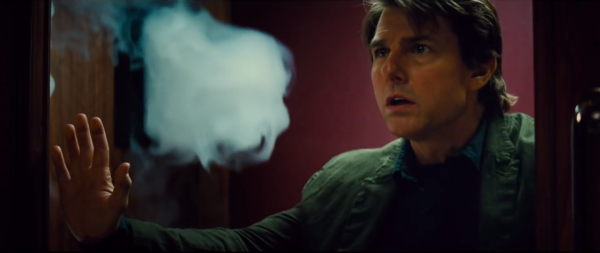
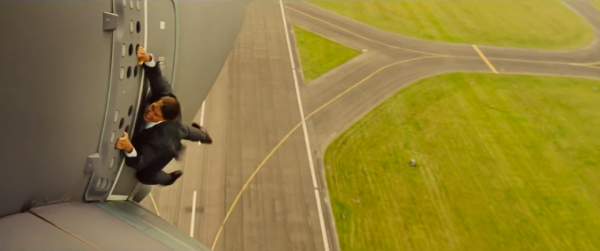
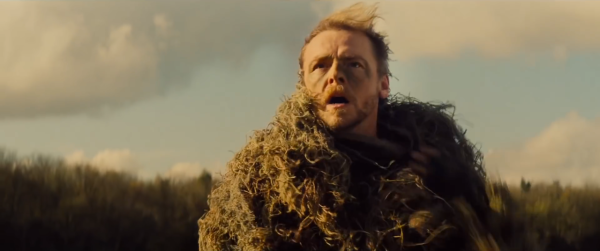
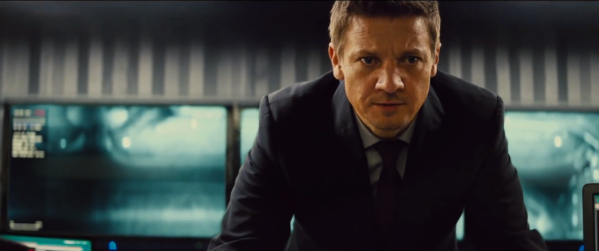
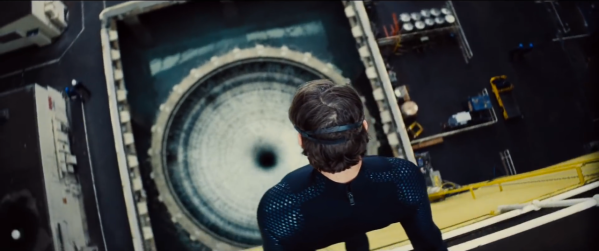
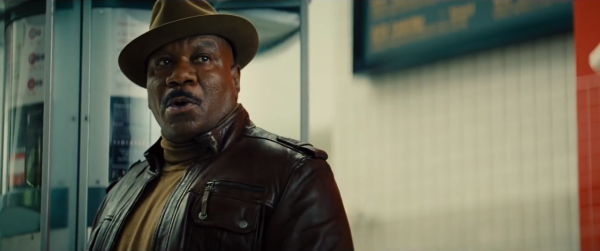
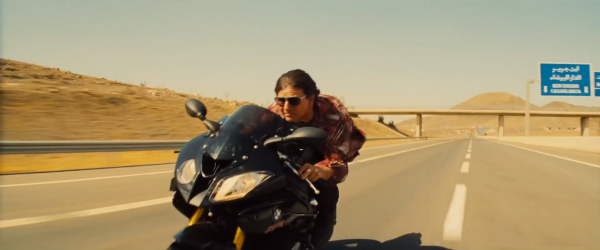
Recent Comments